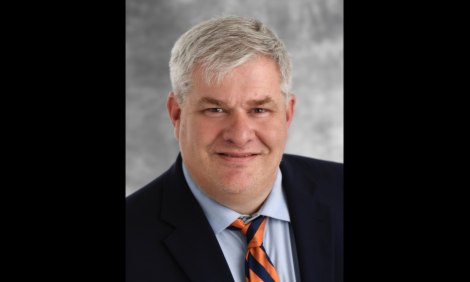



Distinguished Life of a Beef Cattle Geneticist
US - Few people have impacted U.S. beef production more than research geneticist Larry Cundiff. During his tenure with the U.S. Department of Agriculture’s Agricultural Research Service, Cundiff’s work has influenced breed choices in the nation’s beef herds and helped reduce the costs of beef production.For his 40-plus years of accomplishments, Cundiff has received a Kansas State University Distinguished Animal Sciences and Industry Alumnus Award. He was honored Nov. 14 during a seminar and ceremony held in Manhattan, Kan.
Cundiff earned a bachelor’s degree in animal husbandry from K-State in 1961. He went on to earn master’s and Ph.D. degrees from Oklahoma State University in 1964 and 1966, respectively.
* "Dr. Cundiff directed beef cattle research that led to dramatic changes in breeding systems and genetic improvement programs used in U.S. beef production" |
|
Michael Dikeman, chair of the award committee and professor of meat science in K-State’s Department of Animal Sciences and Industry.
|
After a stint as an assistant professor of animal science at the University of Kentucky, Cundiff joined the ARS, USDA, as coordinator of the beef cattle breeding research conducted by ARS and 11 North Central land-grant universities. From 1976 until retirement in 2007, he was research leader of genetics and breeding at the U.S. Meat Animal Research Center. He also served two different times as acting research center director.
“For more than 40 years, Dr. Cundiff directed beef cattle research that led to dramatic changes in breeding systems and genetic improvement programs used in U.S. beef production,” said Michael Dikeman, chair of the award committee and professor of meat science in K-State’s Department of Animal Sciences and Industry.
During his career, Cundiff also led a long-term project to evaluate the effects of heterosis in crosses of Hereford, Angus and Shorthorn cattle. This project demonstrated a 36 percent increase in weight of calves weaned over a cow’s lifetime (12-year) production, Dikeman said.
Cundiff was a major contributor to the comprehensive Germplasm Evaluation (GPE) Program conducted to characterize diverse cattle breeds for biological traits of economic importance.
His work with another team of researchers in studying the development of composite beef cattle populations led to the increased use of composite or F1 seedstock. His results have been widely accepted by cattle producers in both the United States and other countries.
“His stature as a leader, both nationally and internationally, is demonstrated by the invitations he has received to review research programs at many USDA agricultural experiment stations in the U.S. and other countries. Those programs have been in such locations as Australia, Brazil, Canada, Kazakhstan, Kyrgyzstan, Kenya, Mexico and New Zealand,” Dikeman said.
In addition, Cundiff has served on technology transfer advisory committees for the National Cattlemen’s Beef Association and several breed associations. He served as chairman of the Beef Improvement Federation and has been a member of its board of directors since 1981.
In addition, Cundiff has made more than 200 U.S. and international presentations. He’s received numerous awards from USDA, BIF, ASAS, several universities, and breed associations.
TheCattleSite News Desk


